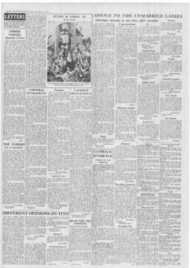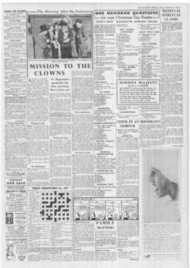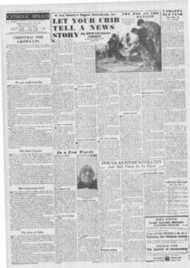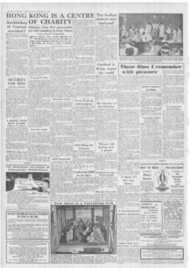Page 1, 26th December 1952
Page 1
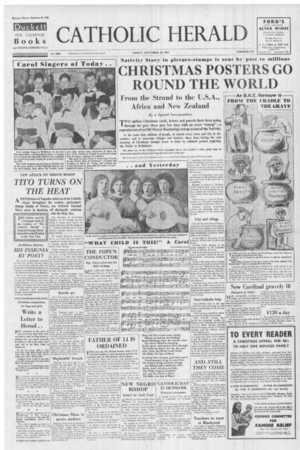
Report an error
Noticed an error on this page?If you've noticed an error in this article please click here to report it.
Tags
Share
Related articles
Tito's Word War Fans Old Fears
Bishop's Protest
Diplomatic Break With Tito Foreseen
Tito Threatens To Break Off Diplomatic Relations
. Tito Condemned Bishop To Death Something Of What Is Really
TITO TURNS ON THE HEAT
AFRESH wave of Yugoslav criticism of the Catholic clergy throughout the country, particularly Bishop Santin of Trieste, has followed Marshal Tito's move in breaking off diplomatic relations
with the Holy See.
The elevation of Archbishop Stepinac to the College of Cardinals is being more openly attacked than ever and the allegation of "Vatican interference in Yugoslavia's internal affairs" is being freely voiced.
The leading Belgrade newspaper, Borba, comments that the whole of Yugoslavia's modern history has been a struggle against enemies whose centre is the Vatican.
Trieste newspapers have concentrated their attacks on Bishop Santin, on whom, they say, the Vatican leans for support in Trieste. One leading Trieste newspaper, Primorski Dnevnik, says that the Vatican anti-Yugoslave policy had reached a point at which a resolute reply from Belgrade was needed, following the elevation of Mgr. Stepinac.
Another Trieste newspaper, Corriere de Trieste, comments : "The break with the Vatican is taken as a sign of strengthening Yugoslavia's position in international affairs and is a blow against the anti-Yugoslav propaganda sponsored by the clergy throughout the world."
Hostile act
Tito's diplomatic break with the Holy See is a matter for sorrow and has made the position of the Church in Yugoslavia more difficult, said the Osservatore Romano in a first comment on Tito's latest move against the Church.
"The Yugoslav note," it said, "caused a profound impression throughout the world and the gesture of the Belgrade Government is being severely judged in the political quarters of various countries."
The whole of the Rome Press, with the exception of the extreme Left, which makes no comment, is unanimous in its condemnation of the latest hostile act of Marshal Tito to the Holy See with the unilateral severing of diplomatic relations.
Tito's latest move against the Church has had the effect in this country of putting his relations with the Church and his treatment at Catholics right in the centre of the political picture, said The Times in an editorial leader last week.
`Deplorable' breach
"Marshal Tito was right not to abandon his proposed visit to this country because of some Roman Catholic protests, Yugoslav and western interests alike require contact to be closer, not more distant. For the same reason—as for others which go deeper—he is now wrong to break off relations wit h the Vatican. The breach is deplorable and a grave blow to hopes of better treatment of Catholics as the rigours of Yugoslav Communism are abated.
"There is no condonation in the visit of illiberal deeds done by Yugoslav Communists, but rather hope that more moderate policies might flow from closer contacts with the friendly west. Hope is weakened by the breach with the Vatican, but not destroyed. More. not less, now hangs on Marshal Tito's visit."
blog comments powered by Disqus



